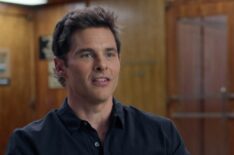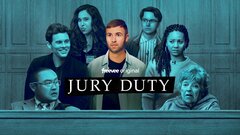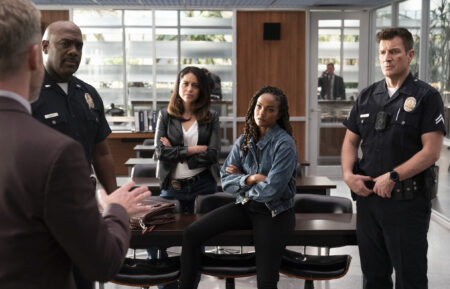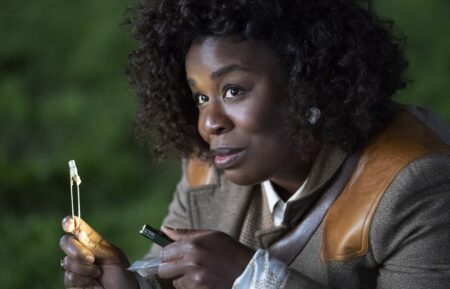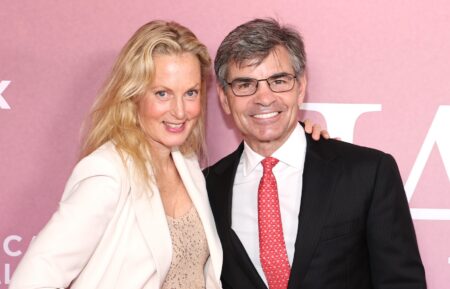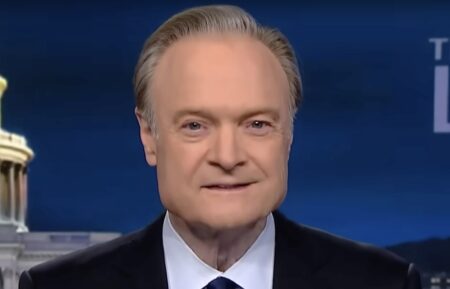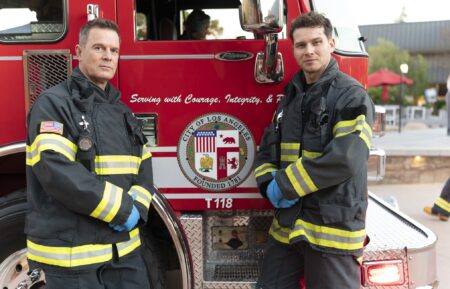‘Jury Duty’ EP Uncovers Easter Eggs & More Treats From New Commentary Edition
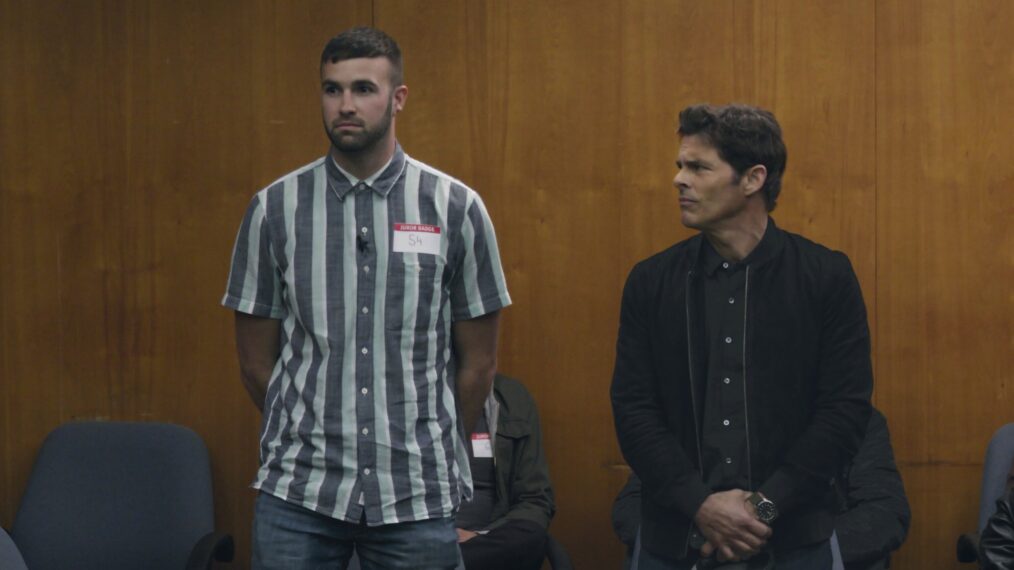
Exclusive
Jury Duty‘s back and delivering all of the commentaries you wish you had while watching the first time around on Amazon Freevee. Re-releasing the first season with commentary from the cast, including Ronald Gladden and James Marsden, as well as director Jake Szymanski, this latest version promises just as many laughs along with answers.
Already streaming on Amazon Freevee, the new commentary episodes unveil never-before-heard anecdotes about what it took to create the chaotic world in which Ronald thinks he’s making a documentary about serving on a jury but is, in fact, the hero of a story filled with actors pretending to be everyday people, including Marsden who portrays a fictional version of himself.
In an exclusive Q&A below, executive producer Nicholas Hatton offers up some fun Easter Eggs and explains the release of the commentary episodes and much more.
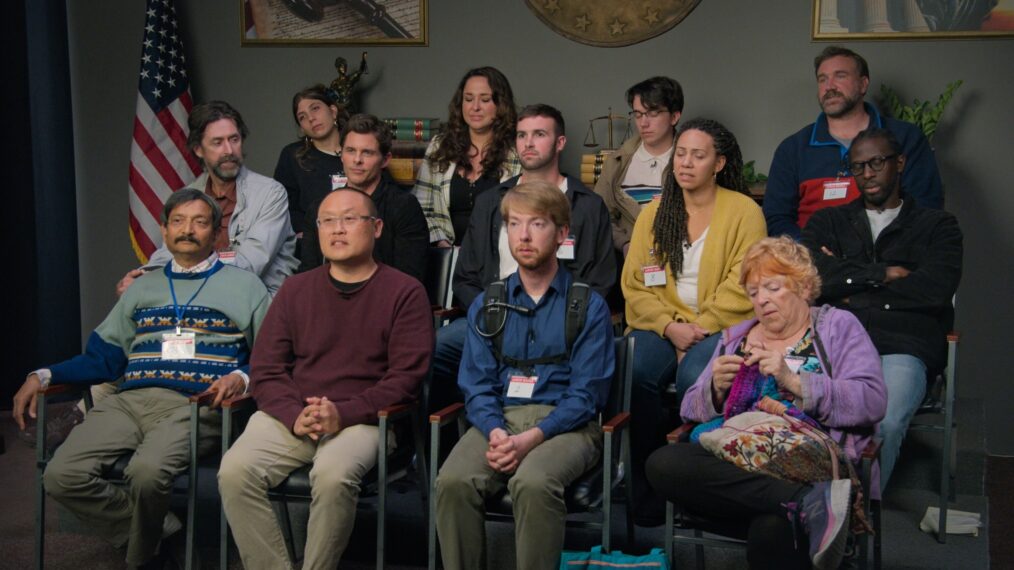
(Credit: Amazon Freevee)
What can viewers anticipate from the commentary episodes that they didn’t get with the regular release?
Nicholas Hatton: What we get with the re-release in the audio commentary is much more behind-the-scenes insight. I know that when people are watching the show, they really responded incredibly well to episode eight, which was us taking everyone behind the curtains as to how we pulled this thing off. Even though the episode was 30 minutes long, we could have gone on for four or five hours with the amount of material that went into creating Ronald’s world. So the audio commentary was a really inspired idea by Freevee to give fans another avenue to enjoy the show and discover a little bit more about it.
There are so many Easter eggs to uncover in this commentary edition, such as the story behind the JORF t-shirt at Margaritaville. What can you tease about the reveals fans can anticipate?
Interestingly, I think JORF is a really good example in this new hybrid format of TV; it is an example of some of the fun that you can have, which we are essentially creating and controlling the world around Ronald, so we can take him on this journey. So you have to control the reality around it. [And so] the funniest thing that you can do is create fake realities as well, as long as you control the information well enough and make the fake reality believable enough.
So, for example, JORF is a completely made-up word. It has no meaning whatsoever. In the writer’s room, you know, the writers took a long time thinking about words that truly have no meaning, no definition, no connotations. And then can we imbue it with this sort of forbidden verboten badness and play this sort of game and see what happens? And so when you put someone in that situation like Ronald, who’s not aware, you have to make sure that any questions [can be answered]. We had to be ready for those sorts of challenges. And so, while we were in the writer’s room, we went ahead and entered JORF into the Urban Dictionary long enough in advance so that it wouldn’t feel like we just put it up there the day of. Similarly, like Cinnamon & Sparrow, the clothing line. We created a website and an Instagram account with a clothing line.
I think the wholesome spirit of the show has been reflected in the journey of the word JORF which started as a very bad made-up word is now being reappropriated as the Jury Of Ronald’s Friends, which I think is a really beautiful metaphor for the show.
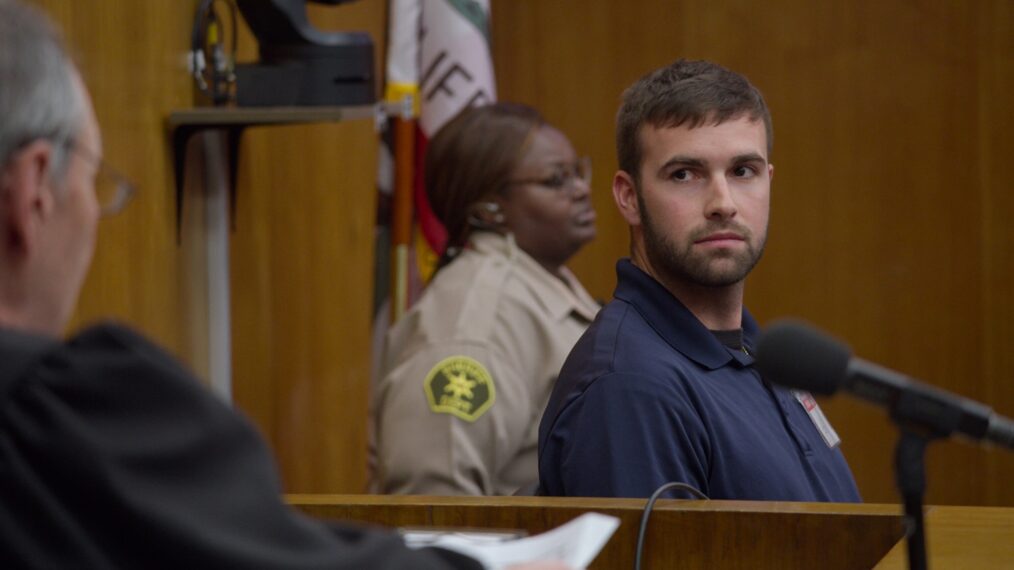
(Credit: Amazon Freevee)
A lot went on behind the scenes to create the illusion of realism for Ronald. How much time and prep went into those scenes cameras are hidden in plain sight?
There’s a tremendous amount of work that goes into all of the sites that we ended up using. And for me, the most important thing when you are designing Ronald’s experience in his day-to-day and where he’s gonna be is it’s all about control. You have to control as many of the variables as humanly possible. Now, obviously, you won’t be able to think of everything, but given the sort of tight-rope act that we were attempting to pull off, we couldn’t have anything from the outside world [interacting]. So, for example, the courthouse had been mothballed for the better part of a decade by the state of California due to budget cuts. It was not in use, it was only used once a year by the city of Huntington Park.
There was flooding, there was mold, and there were no lights. It was pretty destitute. And our production team completely rehabbed it into a functioning space. But because it wasn’t open to the public, it meant that we control every element of it. And to give it life is kind of challenging in its own way as well. You have to hire a lot of background artists. They have to be very talented and very trustworthy. You have to account for every single room they might possibly walk into and a reason for that room existing.
Similarly, for Margaritaville, we bought out the entire restaurant and populated the entire thing with background artists. So every single person that Ronald saw in that restaurant, and it was a full service over the course of about two and a half hours, every single person was an actor in there. Cause you just couldn’t risk something happening. That required a huge amount of work from our design team, our prop teams, and our camera team. We were building false hides and mirrors and things all over the place. The hotel as well is another one of those. The hotel was not open to the public. A tremendous amount of work goes into making these places feel like they’re living and breathing.
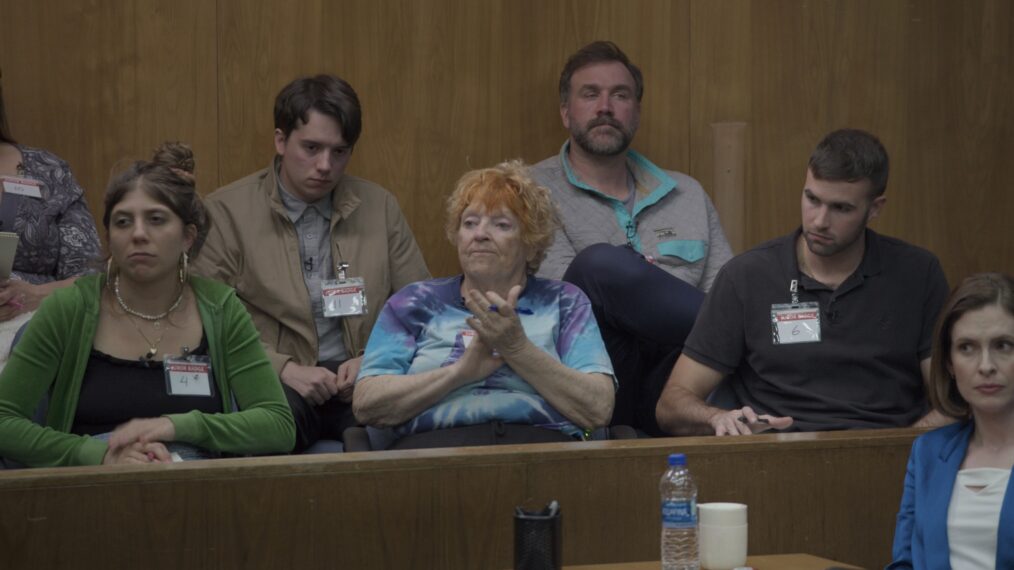
(Credit: Amazon Freevee)
The production is in control most of the time, but one particular sequence in the commentary includes the real story behind Ross’ birthday and how Ronald was upset about James Marsden’s outburst and the failed reunion between Ross and his “wife.” How do you regain control when things go a little off the rails like that?
A lot of thought goes into the scenario itself and the kind of responses we think we’ll elicit from Ronald. And always being mindful of course, that we never wanted it to feel like he was the butt of the joke, or that these experiences would make him in any way feel bad about himself, or bad about the experience as a whole. But at the same time, you had to achieve a sort of story conflict. We had to see things happen with the other characters, which keep our audiences engaged. With something like the park, in the moment the actors are extremely deft at navigating Ronald’s reactions and his feelings to things.
We would have a debrief after every day of shooting, and it would be the producers, the writers, and the actors all talking about what they experienced that day. And those debrief sessions were really important as to those adjustments with Ronald and the kind of things that we were doing with him, what kind of bits we wanted to do, what storylines we wanted to enact. And so, after the park, we thought that the intention was for James to go in there and be an a**hole, right? And we can see how bummed Ronald is that James has destroyed this lovely party for Ross because Ronald is, in real life, a truly lovely, sensitive, and empathetic human being. Afterward, knowing that he didn’t have a good time, and was kind of bummed out by the whole thing. We adjusted stuff that was gonna happen moving forward.
At the end of the day, this is a hidden-camera comedy, but it never is funny at the expense of embarrassing Ronald. What does it mean to see this kinder format resonate with viewers so much?
Honestly, it means everything. It’s unbelievably rewarding. We tried to design an experience that everyone could feel happy about. In this sort of hybrid [genre] I think for some audience members there’s a slight unease when they’re watching it because they know [someone] is essentially kind of sleepwalking headfirst into a wood chipper. Even if that person has terrible, horrible views about the world, people still have a sense of empathy and cringe around that sort of thing. So they’re not able to even engage in that kind of comedy. For us. I think we just removed that barrier. We went out of our way to make sure that people knew we loved Ronald very much and wanted him to have an incredible experience, and we hoped that people would join us on this ride. Because we moved that barrier, I think so many more people were able to enjoy this kind of show than had ever done before.
Jury Duty, Streaming now, Amazon Freevee

